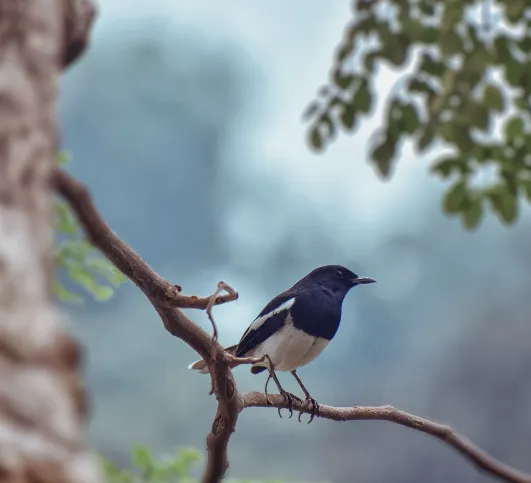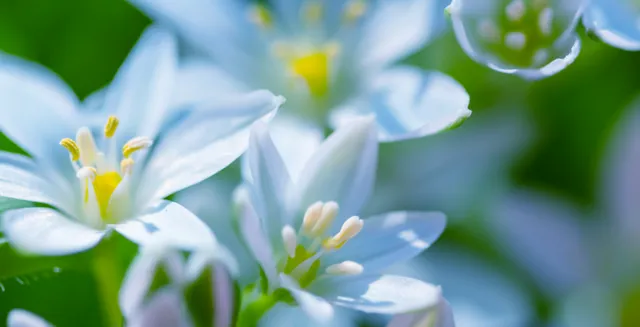▲ 关注 ,让诗歌点亮生活

【诗刊】中国诗歌网 x 英国剑桥康河出版社
汉诗英译 第43辑
译者 | 秦尊璐、游心泉、彼得·休斯
作者 | 王夫刚、李郁葱、青蓖、刘晖、希冀
诗评 | 彼得·休斯 Peter Hughes, 李玥 译

这五首诗探讨了飞行和逃避的吸引力。
将山区和科技发达的地方联系在一起并不常见,但在王夫刚的诗【天尽头,天无尽头】中,作者带读者进入了搭乘高铁枢纽轻松逃离那里的梦境。我们能否外出度个轻松的周末,或者度个更长的假期,接纳 「 现实的修辞 」 ,向东走,去 「 天空的尽头 」 , 「 慰藉他乡 」 ?这首诗还赞美了设计和创建这种高科技基础设施的所涉及到的团队合作: 「 一群人总是比一个人想得周到。 」
天尽头,天无尽头
王夫刚
新的铁路建成,朝发夕至被腰斩
山上分娩出的高铁站
站台几无新意,降到第四层
才能置身车站与城市的
接驳处,倒是有点想象力
临近周末的阳光,现实的修辞
慰藉着他乡——那里
据说一语成谶,东巡
几度沦为意外之旅——
天尽头,不得不短暂地更名为天无尽头
一群人总是比一个人想得周到
End of the Sky, Endless Sky
by Wang Fugang
They built the new railway and time was halved
A high-speed rail hub in the mountains
A bog-standard platform relegated to the fourth floor
Where you find the connections between station and city.
This has a more imaginative design.
Sunlight approaches the weekend with its rhetorics of reality
The consolations of a foreign land – there, it’s said
A single word becomes prophetic, eastward journeys
Turning into unexpected trips –
‘The end of the sky’ is briefly renamed ‘Endless sky’
The group knows more than one person ever can.
秦尊璐、Peter Hughes 译
在李郁葱的作品【小燕尾鸟】中,描写的是一只动人小鸟的飞行。这种生物总是摇摆着它的尾巴,掠过水面,呼唤它的伴侣,最后消失在树林中。诗人疑惑,它为何会摆动它的尾巴?是天性所致还是后天养成?它是有意为之还是只是在显摆?本诗思考了人类和鸟类之间的亲缘关系。我们是否拥有同样的愉悦感受?它的灵魂呢?重量会有多少?通过对灵魂的探讨,该诗引发了一个永恒的人类问题:我们终将归于何处。 从根本上来看, 这首诗是关于生命的意义的,无论是鸟还是人的生命。
小燕尾鸟
李郁葱
不断摇摆的尾巴,小小的礼貌
出于动物本能的一种姿态
炫耀?或仅仅是笨拙中的表达
像它叫声里藏着的森林
剪去一阵阵风,这雀鸟的喜悦
和我的喜悦是否一样?肉体
能够感知到的这些,在密林之间
它遵循于果腹和饥饿
从清澈的水面上一掠而过
它有点水的心?恍若
一道轻微而不被注意的光
但我看见,在岩石之上
它婉转召唤着那看不见的同伴:
隐形伴侣,它的灵魂有几克
是否比我的更加深邃?
在我不注意的时候,它没入山林
Little Swallowtail
by Li Yucong
Constantly wagging tail, little courtesies
A gesture based on instinct
Just showing off? Or an expression of awkwardness
Like the forest hidden in its song
Cut from the dance of the winds, is this bird's joy
The same as mine? We sense
These things deep in the dense forests
Following the rhythms of fullness and hunger
Skimming over clear water
Is its substance that of water, as if it were
Reflections of a slight, unnoticed light?
Yet I saw it, perched on a rock
Calling gently to an unseen companion
An unseen partner, how many grams does its soul weigh
Is it greater than mine?
When I wasn’t looking it disappeared into the forest
秦尊璐、Peter Hughes 译

在第三首诗【喜鹊】中,青蓖延续了鸟类的主题。开篇的几行诗句描写了喜鹊醒目的黑白色羽毛和巨大的身型。我们也一同共享了它日常生活中的小片段。它飞越湖泊寻找食物,最后停栖在建筑物旁的一棵树上。雨水打湿了树枝的表面,我们意识到,鸟儿为求生存所面临的困难和危险。在诗歌的结尾,诗人提醒我们:喜鹊为我们的世界增添了趣味和活力。
喜 鹊
青 蓖
其中有一只喜鹊身形尤大
它飞出灌木,用匀速展示
黑白形成的弧形
长尾张开,双翅鼓动
越过湖水飞向东面
停栖在门口的悬铃木或玉兰树
它们结满果实,充满坠落的担忧
雨露也在增添危机
只有喜鹊带来新的寓意
和新的抉择。旧去的一天
扩散到傍晚的薄光里
就要失去形状
Magpie
by Qing Bi
One of the magpies is huge
It flies from the bush displaying a steady
black-and-white arc
Long tail spread, wings beating
It crosses the lake towards the east
to then perch on wisteria or magnolia by the door
They are full of fruit and anxiety of falling
Rain and dew are adding to the crisis
But the magpie brings new hope
new choices to an old day
spread into the thinning light of evening
and about to lose its shape
游心泉、Peter Hughes 译

刘晖的诗作【燃烧】是一首充满活力的诗歌,触及了逃避、和平和超越等主题。与我们本辑的第二首诗一样,它也提到了 「 灵魂 」 。这篇作品以巨大的能量开篇:夏天树木上的生命、蝉鸣的声音、河流的巨浪冲击着它的堤岸。
燃 烧
刘 晖
夏日的绿色火焰,
在山谷里燃烧,空气嘶嘶发抖,
连蝉也惊骇于自己无休止的预言。
河流用内心的波浪
撞击着防波堤,一遍又一遍,
仿佛是要用身体的疼痛,来感知灵魂的存在。
一个少年在风中疾跑,
当他回望的时候,
树木跑得比他还快。
远处,哐当哐当的火车
正在换轨。
这些迷人的诗句引出了诗歌中的主角,一个奔跑着的少年。他 「 在风中疾跑 」 ,当他回头望时,发现树木似乎也在追赶他。他永远无法逃离周围环境。接着,远处传来火车换轨的声音,提醒我们当代世界中存在着的其他强大自然力和存在体。
Burning
By Liu Hui
Green flames of summer
burn in the valley, the air hisses and trembles
even cicadas are startled by their endless prophecies
The river crashes against the breakwater
with its inner waves, time and again
as if the pain of its body could detect the existence of the soul
A young man is running in the wind
When he looks back
The trees are outrunning him
In the distance the clanking train
is switching tracks
游心泉、Peter Hughes 译

第五首诗,也是最后一首诗,是希冀的【开花的万年青】。标题中的万年青似乎总在那里,每天的变化也很小。但突然间,它被淡白色的花朵覆盖,我们也意识到没有什么事情能长存不变。这种转变让诗人想起了过去的一个女子。那天对她来说是个特别的日子,就像开花对于植物而言也是一个特别的时刻一样。她精心打扮,穿上最好看的衣服,但诗人记不起是因为何事了,只记得那一瞬间的闪耀动人,以及她的模样。诗歌以母亲安静微笑的旧照片结束。相片正在慢慢褪色。或许,他提及的那个年轻女子,是他多年前的爱人:
属于她的,很少的明亮瞬间
就像这淡白色的小花,静静地
在蒙灰的旧枝叶中,亮着
这是一个凄凉而又美好的时刻,提醒我们没有人能欺骗时间。
开花的万年青
希 冀
日子像这株经年的万年青
习惯于蒙灰,滋长,滋长,蒙灰
某一天,竟开了花
淡白色的小朵,闪着光
我那么容易就想到了剪发的她
那天换了一身半新的西服,一双
黑皮鞋,用一只黑棍小发夹
把头发别到耳后。她那天
去做什么呢?我实在记不起
属于她的,很少的明亮瞬间
就像这淡白色的小花,静静地
在蒙灰的旧枝叶中,亮着
我的母亲,她也悄悄地
在褪色的老照片中,笑着
Blossoming Evergreen
by Xi Ji
Days are like this everlasting evergreen
accustomed to dust and growth, growth and dust
But one day it unexpectedly blossoms
With pale white flowers shimmering with light
So I thought of her with her new haircut
That day she wore a nearly-new suit
Black shoes, hair pinned back behind her ear
with a small black clip. That day
what was she going to do? I really can't remember
Her few bright moments like those of
These pale white blossoms, quietly shining
among the dusty old branches and leaves
My mother also quietly smiles
in the old fading photos
游心泉、Peter Hughes 译
Introduction to Batch 43
The attractions of flight and escape are explored in these five poems. We do not always associate the mountains with a place of technological advances, but in Wang Fugang’s poem ‘End of the Sky, Endless Sky’ the reader is invited to dream of an easy escape through the high-speed rail hub there. Could we travel away for a relaxing weekend, or a longer holiday, embrace the ‘rhetorics of reality’ to head east, to the ‘end of the sky’ and the ‘consolations of a foreign land’? The poem also celebrates the teamwork involved in designing and creating such high-tech infrastructure: ‘The group knows more than one person ever can.’
They built the new railway and time was halved
A high-speed rail hub in the mountains
In ‘Little Swallowtail’ by Li Yucong the flight in question is that of an appealing bird. This creature is always wagging its tail, skimming over water, calling to its mate and eventually vanishing into the trees. But why, the speaker asks, does it wag its tail? Is it nature or nurture? Does it have a purpose or is the bird just showing off? The poem wonders about the kinship between human and bird. Do we have the same sense of pleasure? And what about its soul? How much might it weigh? By speaking of the soul, this poem raises the timeless human question of our ultimate destination.
Cut from the dance of the winds, is this bird's joy
The same as mine?
Ultimately the poem is about the meaning of life, whether it be the life of a bird or a person.
We continue with the bird theme in poem three, ‘Magpie’ by Qing Bi. The dramatic physicality of the bird and its striking black and white plumage are evoked in the opening lines. We are also invited to share in the everyday dramas of its life. It traverses a lake in search of food and ends up by a building, in a tree. The rain has made the surfaces slippery and we are made aware of the difficulties and danger of the bird’s struggle to survive. At the end the poet reminds us that the magpie adds to the interest and vitality of our world.
But the magpie brings new hope
new choices to an old day
‘Burning’ by Liu Hui is a poem full of energy which touches on the themes of escape, peace and transcendence. As with our second poem, it refers to ‘the soul’. This piece starts with tremendous energy: the life in summer trees, the sounds of the cicadas, the powerful currents of a river pushing against its boundaries.
The river crashes against the breakwater
with its inner waves, time and again
as if the pain of its body could detect the existence of the soul
These fascinating lines bring us to the human protagonist of the poem, a human runner. The man is ‘running in the wind’ but when he looks back it seems that the trees are keeping up with him. He can never escape his surroundings. Then the sound of a train in the distance as it changes tracks reminds us of other powerful forces and presences in the contemporary world.
The fifth and final poem from our selection is ‘Blossoming Evergreen’ by Xi Ji. The evergreen plant of the title seems to be always there, changing little from day to day. But then suddenly it is covered in pale flowers and we are reminded that nothing stays the same for long. This transformation makes the speaker of the poem remember a woman from the past. It was a special day for her, just as the blossoming is a special time for the plant. She dressed with care in her best clothes but the speaker cannot remember the reason. He just remembers the luminous beauty of the moment, and how she looked. The poem ends with old photos where the speaker’s mother quietly smiles. Even the photographs are fading away. He says of the young woman, perhaps a lover from years ago:
Her few bright moments like those of
These pale white blossoms, quietly shining
among the dusty old branches and leaves
It is a poignant and beautiful moment when we are reminded that no one can cheat time.
Peter Hughes
UmbriaDecember 2023

国际诗歌评论人 | 彼得·休斯
诗人、创意写作教师,现任英国剑桥康河出版社资深文学编辑、剑桥徐志摩诗歌艺术节编委。2013年,他的诗歌选集与【对特殊事物的直觉:彼得·休斯诗歌评论集】(‘An intuition of the particular’: some essays on the poetry of Peter Hughes)同时由Shearsman出版社出版。他根据意大利经典创作了【十分坦率】(Quite Frankly,Reality Street出版社)、【卡瓦尔康蒂】(Cavalcanty,Carcanet出版社)、【via Leopardi 21】(Equipage出版社)等众多充满创意的作品,广受好评。 彼得是剑桥大学英语系朱迪斯·威尔逊诗歌基金获得者、客座专家,剑桥大学莫德林学院在诗歌领域的客座院士。近期出版的作品包括:2019年的【柏林雾沫】(A Berlin Entrainment,Shearsman出版社)、2020年的【毕士大星座】(Bethesda Constellations,蛎鹬出版社)等。
栏目介绍
「汉诗英译」栏目自2018年10月启动至今,现已完成第一阶段的翻译工作,与美国同道出版社合作,从【诗刊】和中国诗歌网「每日好诗」中精选800余首诗歌译成英文,推动当代中文诗歌走向世界。
从2022年4月起,中国诗歌网与剑桥康河出版社合作开展汉诗英译工作。
翻译团队为剑桥康河诗社,它是英国剑桥康河出版社(Cam Rivers Publishing) 旗下的诗歌翻译与编辑团队,由英国国家学术院院士、剑桥大学社会人类学教授、剑桥徐志摩诗歌艺术节创始人艾伦·麦克法兰(Alan Macfarlane) 担任主席。团队由英国资深诗人与文学编辑彼得·休斯 (Peter Hughes)、露西·汉姆尔顿 (Lucy Hamilton),以及其他多位毕业于剑桥大学和其他知名高校的译者与学者组成。
「汉诗英译」每期发布五首汉英对照诗歌,并附国际诗人的点评,同步在中英两国推出,欢迎各位诗友关注和批评!
诗歌写作训练营学员招募中!
7位诗人教你写现代诗
订阅2024全年【诗刊】
综合自:【诗刊】社、中国作家网等
如何投稿 ✦
每日好诗
登录中国诗歌网 www.zgshige.com, 免费注册即可投稿! 入选「每日好诗」,获稿费和专家点评,有机会登上【诗刊】。
编辑:王傲霏,二审:曼曼,终审:金石开











